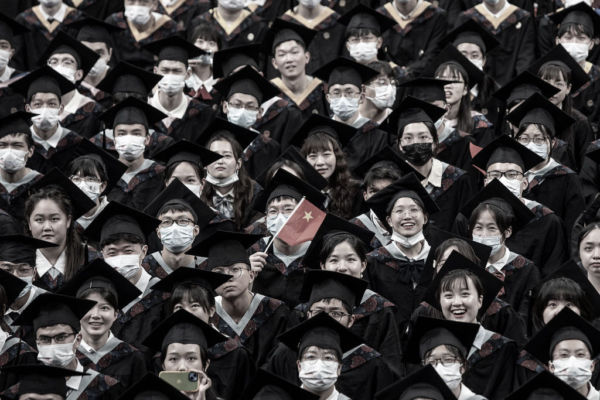Danish universities are conducting background checks on students and visiting scholars from China, Iran, and Russia to prevent sensitive information leaks, according to a report by Nikkei Asia on Thursday. Some universities are particularly concerned about applicants graduating from Chinese universities closely linked to the People’s Liberation Army.
Twenty-five years ago, Denmark, like many European countries, began actively collaborating with China in academic endeavors, but this enthusiasm has now turned into caution.
The latest guidelines from the Danish Ministry of Education have classified (Communist) China, Iran, and Russia as “high-risk” countries, requiring background checks on applicants during the doctoral admissions and enrollment process. The investigation also includes visiting scholars from these countries, covering project collaboration, employee travel policies, physical security of key research, and contract termination procedures.
According to the Danish newspaper “Politiken,” in 2023, at least 239 Chinese doctoral students were enrolled in Denmark through projects in collaboration with the China Scholarship Council (CSC), a non-profit entity under the direct jurisdiction of the Chinese Ministry of Education.
One of Denmark’s oldest universities, Aarhus University, has removed 13 candidates out of 135 foreign students and scholars based on guidelines developed by the Danish Ministry of Higher Education and Science.
Brian Vinter, Associate Dean for Research at the School of Engineering, Aarhus University, told Nikkei: “We have hired a Chinese-speaking staff member specifically to screen Chinese applicants’ resumes, such as whether they come from Chinese universities known as the ‘Seven Sons of National Defense’ and if they intend to work in quantum computing here.”
The “Seven Sons of National Defense” refers to seven technical colleges under the Chinese Ministry of Industry and Information Technology, including Beijing Institute of Technology, which are widely believed to have close research cooperation with the Chinese military.
Aarhus University has also employed a person fluent in Persian and Russian to screen applicants.
“If I believe an applicant may be under pressure from foreign intelligence agencies, I will reject their application to protect the applicant,” Vinter added.
It is reported that the Netherlands is also considering similar measures in response to the EU’s 2024 proposal for national academic review. Belgium and Germany are also engaged in political debates on the feasibility of such systems.
In April, the Dutch Ministry of Education, Culture, and Science proposed the “Knowledge Security Screening Act,” targeting all researchers and university students wishing to engage in sensitive information work in the Netherlands, specifically naming (Communist) China, Iran, and Russia.
In the same month, the Dutch military intelligence agency warned in its annual report that Chinese spies have targeted the Netherlands’ semiconductor, aerospace, and maritime industries.
The number of foreign students applying to study in the Netherlands in research areas such as artificial intelligence, biotechnology, quantum computing, semiconductor manufacturing, and nuclear technology reaches as high as 8,000 annually.
In 2023 alone, nearly 2,200 Chinese government-funded scholars studied in the Netherlands. According to the Dutch think tank Clingendael, nearly half of the research fields Chinese students are engaged in hold strategic significance for both countries.

